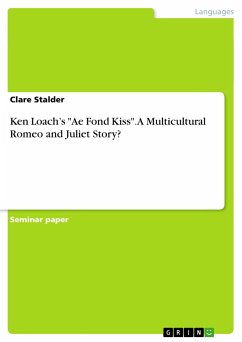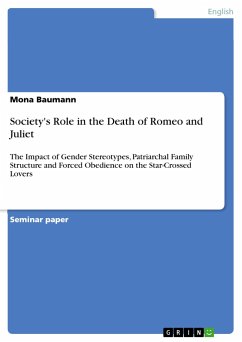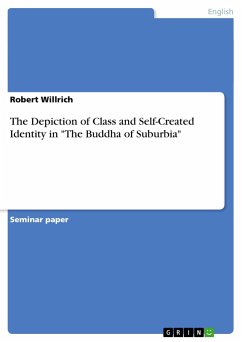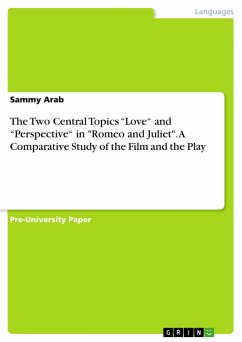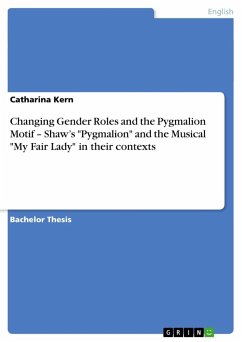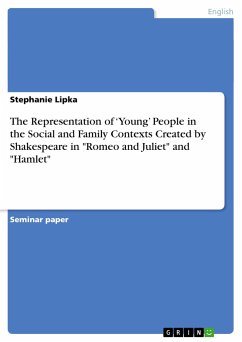
The Representation of 'Young' People in the Social and Family Contexts Created by Shakespeare in "Romeo and Juliet" and "Hamlet"

PAYBACK Punkte
0 °P sammeln!
Seminar paper from the year 2002 in the subject English Language and Literature Studies - Literature, grade: 2,3, University of Münster (Englisches Seminar), course: Shakespeare and Tragedy, language: English, abstract: Without any doubt, Shakespeare can be called one of the greatest observers of alltimes. In his plays, the reader is confronted with characters from all sorts of social,cultural and religious backgrounds. Among the most well-known characters, we findkings, (their) queens and princes (like Hamlet), Jews (in "The Merchant of Venice"),black people (Othello), and Roman soldiers, no...
Seminar paper from the year 2002 in the subject English Language and Literature Studies - Literature, grade: 2,3, University of Münster (Englisches Seminar), course: Shakespeare and Tragedy, language: English, abstract: Without any doubt, Shakespeare can be called one of the greatest observers of alltimes. In his plays, the reader is confronted with characters from all sorts of social,cultural and religious backgrounds. Among the most well-known characters, we findkings, (their) queens and princes (like Hamlet), Jews (in "The Merchant of Venice"),black people (Othello), and Roman soldiers, not to mention all those who did notgive a play its title. Looking at professions, Shakespeare employs characters from allsocial levels - be they grave-diggers, jesters, killers or noblemen.Within the plays, those characters seldom stand alone. They appear in groups, in thecontext of their friends and families. A character is thus provided with a wife orhusband, a mother and father, maybe a step-parent, grand-parents, sisters, brothers,girl- or boyfriends and mates. As a family does not consist of only one age group,Shakespeare has to focus on several generations of characters, waving a complex netof relations and interactions.In this paper, I would like to look at the representation of 'young' people in two ofShakespeare's tragedies, "Romeo and Juliet" and "Hamlet". The term 'young' will bereflected upon in my second chapter, as will be upon the term 'tragedy'. As a futureteacher, the presentation of youth is an interesting topic for me, and looking at youngpeople interact (and interact with older characters) in Shakespeare will be somethingworth doing: in focussing on youth, the cliché of tragedy often dealing with 'old'people will be broken. This paper is meant to show that Shakespeare did not write ina single-dimensional way, but his plays offer a broad observation of any age group.After giving a short synopsis of the two tragedies in chapter three, I will, in chapterfour, present the tragedies' characters in their respective context and in relation toeach other and comment on their behaviour and attitudes.In my conclusion, I will concentrate on the characters in their relation to the genre oftragedy - reflecting on life, love, destiny, youth, and death.







